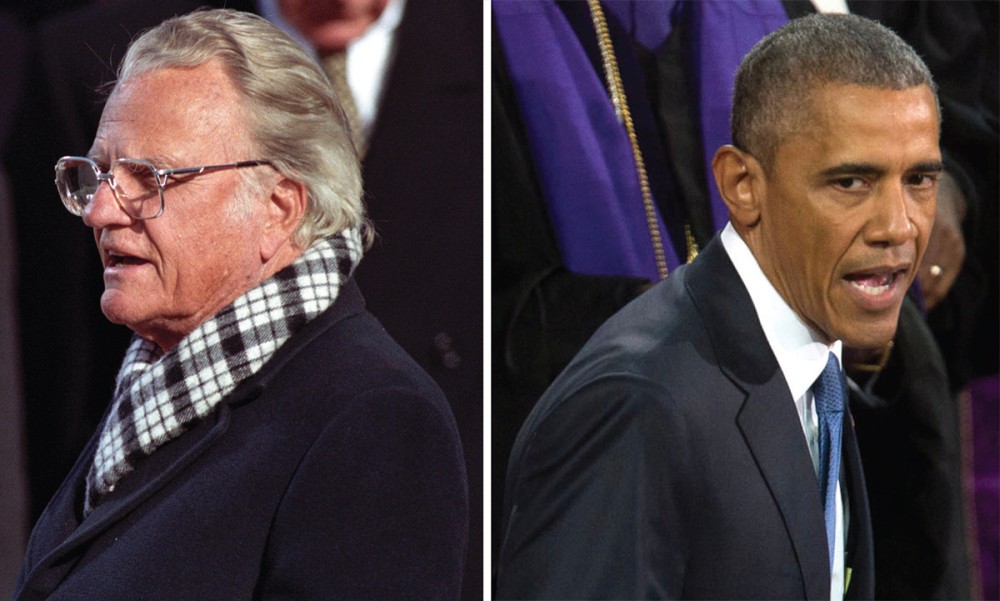Billy Graham and Barack Obama each offered a pastoral voice in a time of tragedy
We need someone to speak to our moment, too.

Today’s pandemic scourge, coupled with a new awareness of centuries of racial injustice and economic disparities, has created pain of such magnitude that it seems unique to our time and place. It isn’t. Misery caused by the cruelties of nature, combined with the cruelties caused by humans, has afflicted people since time immemorial. Even so, this moment somehow feels unique because it is ours. Ours to suffer, ours to atone for, and ours to repair.
In times past, pastoral figures have periodically emerged to help guide the entire nation. Abraham Heschel, Theodore Hesburgh, Reinhold Niebuhr, and Martin Luther King Jr. spoke from the covers of national magazines. Dorothy Day and Fanny Lou Hamer spoke equally powerfully from more modest venues.
As we wait for a pastor to emerge in our current crisis, it’s worth returning to the words of two individuals who spoke in tragic settings in our nation’s recent history. In their mournful grandeur, both Billy Graham (who died in 2018 at age 99) and Barack Obama model how a pastoral benediction might help us find a way forward today.




